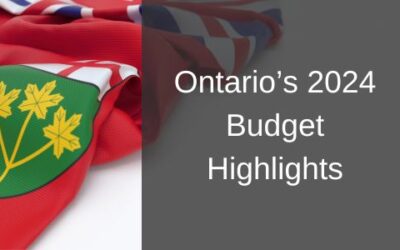Starting Your Career
I’M STARTING A NEW CAREER, WHAT DO I NEED TO DO?
Starting Your Career
Who?
- Age 21 to 34 Years Old
- Starting your career
- Finished school
Priorities
- Pay off debts, student loans, credit cards
- Establish an emergency fund
- Start a Budget
- Pay yourself first: start a regular savings plan
- Downpayment for a home
- Save for large purchases: such as car,
- Start saving for your retirement
- Review your benefits from work including your health and disability benefits.
Latest News
How to Choose and Customize a Group Benefits Plan for Small Businesses
Unlock the secrets to creating a brighter, sustainable future for your small business and employees. Discover the power of customized group benefits plans and why they’re the key to success. Read the full article here!
Ontario’s 2024 Budget Highlights
Ontario’s 2024 Budget keeps personal & corporate tax rates steady, extends gas tax cuts, and revises the OCASE Tax Credit. Discover how these changes affect you!
Why A Buy-Sell Agreement Is Vital For Your Business
A buy-sell agreement is a legally binding document that sets out what must happen to a business if one or more of the owners is no longer involved. It is crucial for businesses as it protects both shareholders and the business itself in the event of a partner’s departure. A buy-sell agreement provides many benefits, including maintaining business continuity, minimizing disputes between remaining co-owners and the family of the departing owner, decreasing stress and uncertainty for all business owners, and protecting business assets and liquidity with a solid financial and tax plan.






